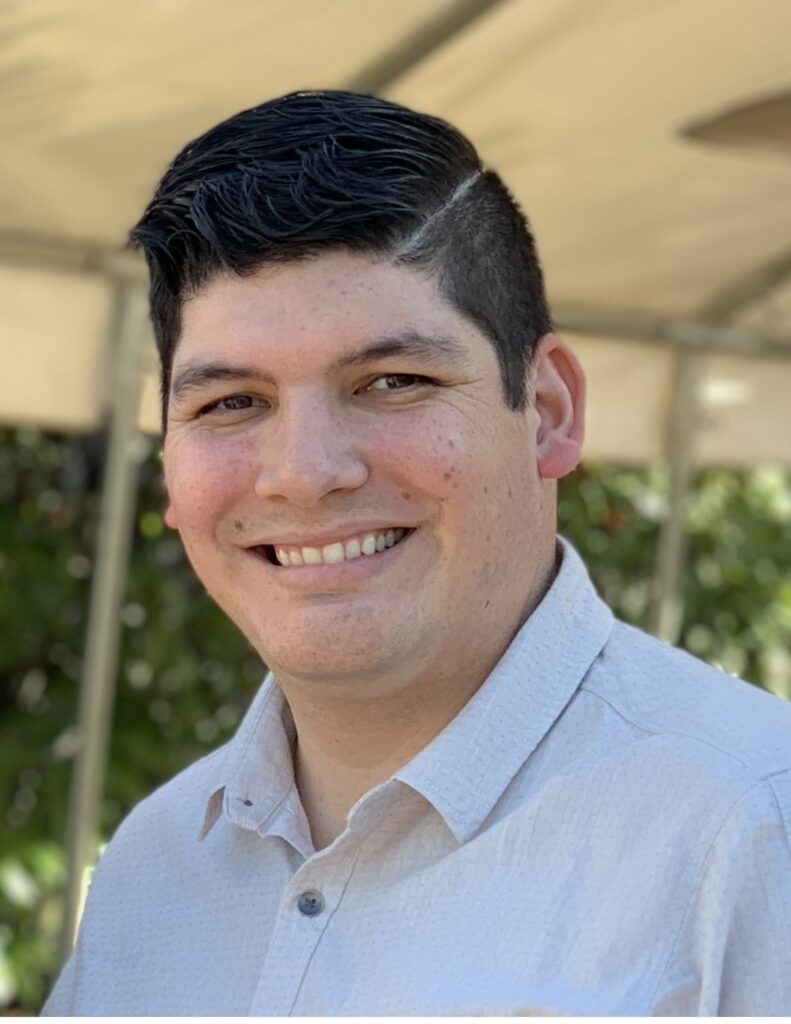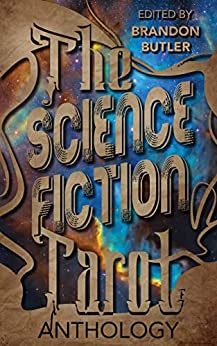Every time I turn around, more fascinating authors consent to be interviewed. Today I’m featuring another author from the anthology The Science Fiction Tarot.
Jacob Pérez was born in Ponce, Puerto Rico, but spent most of his young adult life in Boston, Massachusetts. He grew up reading books and gaining an unhealthy knowledge of comics and movies. After graduating from college in 2008, he dedicated his continued education to caring for people. If he couldn’t have superpowers, nursing was the next best alternative.
He spends his time off writing about monsters, spaceships, robots, and the most bizarre creatures. He loves crossing genre boundaries and exploring the complexity of human nature. He now lives in Loomis, California, with his wife, three beautiful kids, and an indifferent cat named Zelda. He’s currently working on expanding his writing portfolio.
Let’s get to the interview:
Poseidon’s Scribe: How did you get started writing? What prompted you?
Jacob Pérez: I started my writing career back in 2009. I’d just graduated from college and was working through my nursing degree. My job, then, was an office assistant position that allowed for a lot of downtime. Around this time, I read Eric Van Lustbader’s The Ninja. It sparked something in me. After reading it, I discovered I wanted to write a novel I would enjoy throughout, as so many of my favorite books had done for me.
I’d always been an avid reader. For as long as I can remember, I would carry around a novel to read during my free time. So, writing was always in the back of my mind. But the reason I waited so long to write was due to a lack of confidence. Growing up in a predominately Spanish-speaking household, the idea of learning to write at a professional level felt like a daunting aspiration. But there I was, with the perfect job and that spark of inspiration to give me the push I needed to start writing.
P.S.: Who are some of your influences? What are a few of your favorite books?
J.P.: I grew up on The Berenstain Bears and R.L. Stine as a child. They were my gateway into my obsession with reading. Unlike many classmates, I enjoyed our assigned book reading list. But my early influences were an eclectic group of writers: Mary Shelley, Victor Hugo, Eric Van Lustbader, Stephen King, Dan Simmons, Frank Herbert, and Orson Scott Card, to name a few. I devoured their books and their series. Some of my favorites include The Last Stand, Hyperion, Dune, Frankenstein, and Ender’s Game. I didn’t gravitate toward one genre. I loved them all.
Since then, my taste in writing has expanded. I’ve found authors like Neil Gaiman, Kazuro Ishiguro, Amal El-Mohtar and Max Gladstone, M. John Harrison, and Jennifer Egan, whose mastery of the English language is awe-inspiring. Picking my favorite story is hard, but if you twist my arm and force me to answer, M. John Harrison’s The Pastel City and Amal El-Mohtar and Max Gladstone’s This is How You Lose the Time War (which I read before the recent tweet) are at the top of my all-time favorite novels.
P.S.: If you won a trip to the fictional world of another author, where would you go and what would you do there?
J.P.: I’ve always been fascinated by space exploration and the many forms executed in science fiction. That being said, I would love to be a crew member of the Wayfarer from Becky Chamber’s The Long Way to a Small Angry Planet. Who doesn’t want to travel on a spaceship with a multi-species crew while creating wormholes to connect distant trade routes?
P.S.: I understand your day job is a nurse. It seems you drew inspiration from that in your short stories “Coterie” and “Code Gray.” Do you plan to continue with medical-related stories, or go in different directions?
J.P.: My two short stories, “Coterie” and “Code Gray,” are a couple of the very first I ever wrote while under a mentorship about four years ago. As a new writer, it was only natural for me to draw inspiration from my day job. Key elements were already there. But as I develop as a writer, I want to step out of my comfort zone. I want to explore the potential that speculative fiction has to offer without overly relying on my day job. I’m sure another medical-related story will eventually want to be told. It’s been a lot of fun writing other stories for now.
P.S.: I gather from your Facebook page that you are (or were) a runner. Do you find yourself thinking about fiction story ideas as you run? If not, when do you get your best ideas?
J.P.: I used to run until I tore my meniscus a few years back. Until that happened, running was a great time for me to develop my stories. Now, I’m juggling toddlers, work, and friends. And while I try to think about my writing constantly, my best ideas appear at night. My phone’s notes are riddled with ideas, phrases, and concepts that pop into my head late at night. It would seem my muse likes to come knocking in that period of half-sleep while I’m trying to turn in.
P.S.: Your bio mentions monsters, spaceships, robots, and bizarre creatures. How did you become interested in writing science fiction?
J.P.: As mentioned above, I became interested in science fiction from my insatiable love of reading. It also stems from my obsession with movies and comic books. My father exposed me to movies like Star Wars, Robocop, Aliens, and Terminator when I was very young. He also introduced me to comic books and their fantastical stories that spanned from Earth to the far-reaching edges of space. I’d like to believe that movie ratings were lost in translation at my household. But in reality, I believe my father just wanted to share his love of science fiction, and ratings be damned.
P.S.: In The Science Fiction Tarot anthology, your story “The Bridge” earns a tarot card labeled “Virtual Reality.” Can you tell us the premise for the settings in the story?
J.P.: My story, “The Bridge,” is set hundreds of years in the future, after humanity flees a dying Earth. An immersive virtual reality program has been developed to alleviate the physiological stressors of prolonged space travel. My main character is a companionship entity within this virtual reality program whose human girlfriend is on the verge of ending their relationship. When I wrote this story, I wanted to explore what would happen if such a character developed real human emotions, but those feelings contradicted its core programming. It also delves into the creator’s motive in creating the program, her legacy, and how it affects the story’s characters. As our technology increases and the debates on AI intensify, the idea that a programmable entity could have feelings is not far-fetched.
P.S.: It appears some of your Puerto Rican background worked its way into your story “The Bridge.” Did your memories of PR make the story easier to write?
J.P.: Yes, this is a perfect example of writing what I know. I love Puerto Rico. I love the rich culture of my people, our traditions, and the way we place a high level of importance on family and family honor. While I’ve never been to that particular observatory in Puerto Rico, I drew sensory descriptions and settings from personal experience. It’s definitely a setting I will use again in future stories.
P.S.: What are the easiest, and the most difficult, aspects of writing for you?
J.P.: There’s an easy aspect to writing? Tell me, please! All kidding aside, the easiest part for me is creating wonderful stories using my words. I love coming up with exciting plots and memorable characters. It’s very rewarding. What I’ve found the hardest is balancing my other obligations in life and finding time to write. Like many writers, I don’t have the luxury of making a living from writing. At least not yet. So family and work come first in my life.
P.S.: What is your current work in progress? Would you mind telling us a little about it?
J.P.: My current work in progress is a Writers of the Future entry. My main character travels via quantum teleportation for the first time and discovers the multiverse. Suddenly, he has the opportunity to find a universe where his wife doesn’t die in a car accident. But chaos ensues when his jumps have unforeseen consequences. It’s a fun story and a little different from the emotionally complex stories I’ve written in the past. The balance in humor, plot, and character development has been a challenge, but it has a lot of potential to make for a great story.
Poseidon’s Scribe: What advice can you offer aspiring writers?
Jacob Pérez: Now, that’s a loaded question. There is so much great advice out there, made by people far more talented and experienced than me. But the one that I live by is one a mentor gave me. Writing is a marathon, not a sprint. We all want to be great writers and publish our stories for the world to read. In our enthusiasm, we forget that it takes time to master any craft. Everyone’s writing experience is different. I’m guilty of comparing myself to others. But it does you a disservice to rush the process. So many factors affect a writer’s journey, and every journey is unique. So, keep your head down, read, write, learn, and figure out what you want to say with your voice. Let that unquenchable need to write and tell stories fill you with perseverance. Because writing is hard, but if that’s what you love and want to do it right, the journey is worth it.
Thanks, Jacob.
Readers can find out more about Jacob Pérez at his website, Twitter, Facebook, Instagram, and his Amazon author page.


